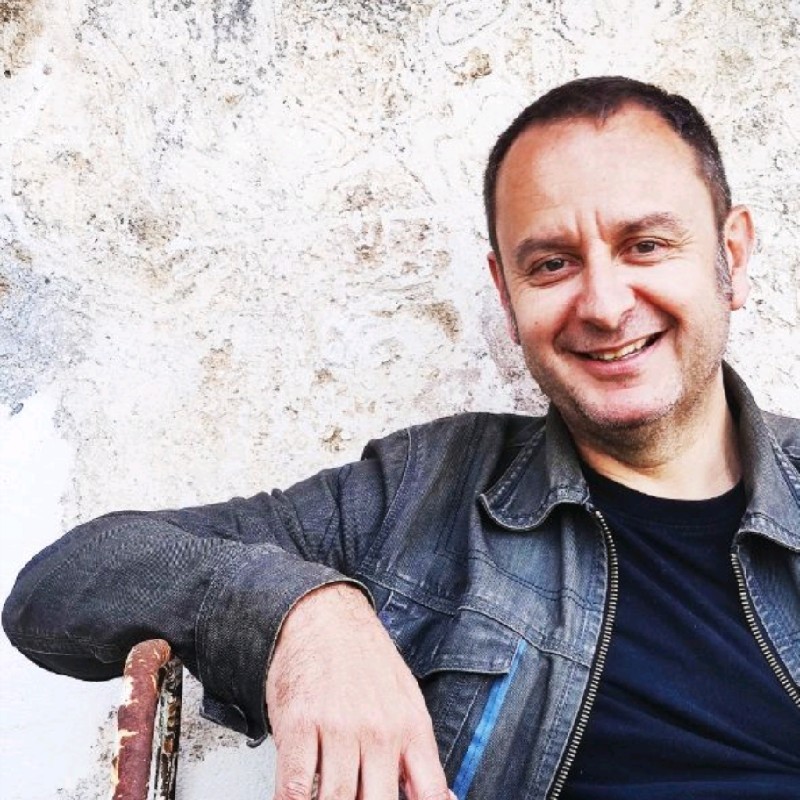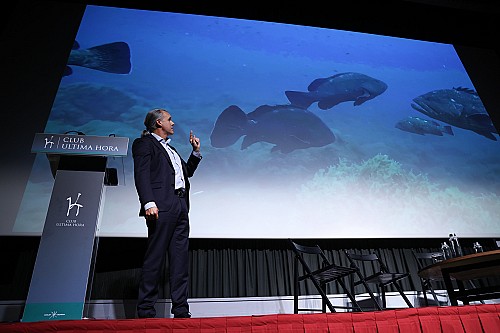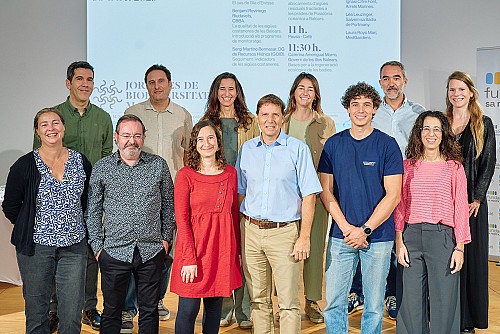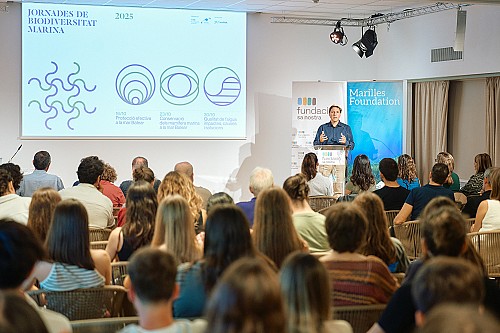Jaume Perelló is a journalist, and currently the coordinator of the weekly ARA Balears. He has worked in different media, both on TV and in the press, and has directed current affairs programmes and environmental series. He has also worked for different entities and foundations linked to the environment, such as IbizaPreservation, AVINA, and GOB Mallorca. Since its foundation, he has been a member of the Marilles board of trustees.
How did the possibility of joining the board of Marilles come about and why did you accept?
When the Adessium Foundation and the Van Vliet family decided to set up Marilles, I was already familiar with their projects from my work in environmental foundations. They also knew me. We had talked about the importance of setting up a lung for marine projects in the Balearic Islands, a catalyst, and from those conversations came the idea that I would be part of the management team to promote it. I didn't hesitate.
What is the most difficult and the most rewarding part of being a member of the board?
The board of trustees has a very interesting job. What it does is ensure that the objectives of the foundation are met and its mission iscarried out. We spend a significant amount of time analysing the marine environment and the actors involved. Wetry to find ways to make it possible to protect the sea and its resources and to move this forward, always based on the initiatives of those who work with it every day. We also dedicate a lot of time to studying the projects presented by the people and entities that form part of the family of the sea. It is not easy to choose. There are many projects and many good people to carry them out but out resources are limited. It is gratifying to see how these projects progress and how results are achieved little by little.
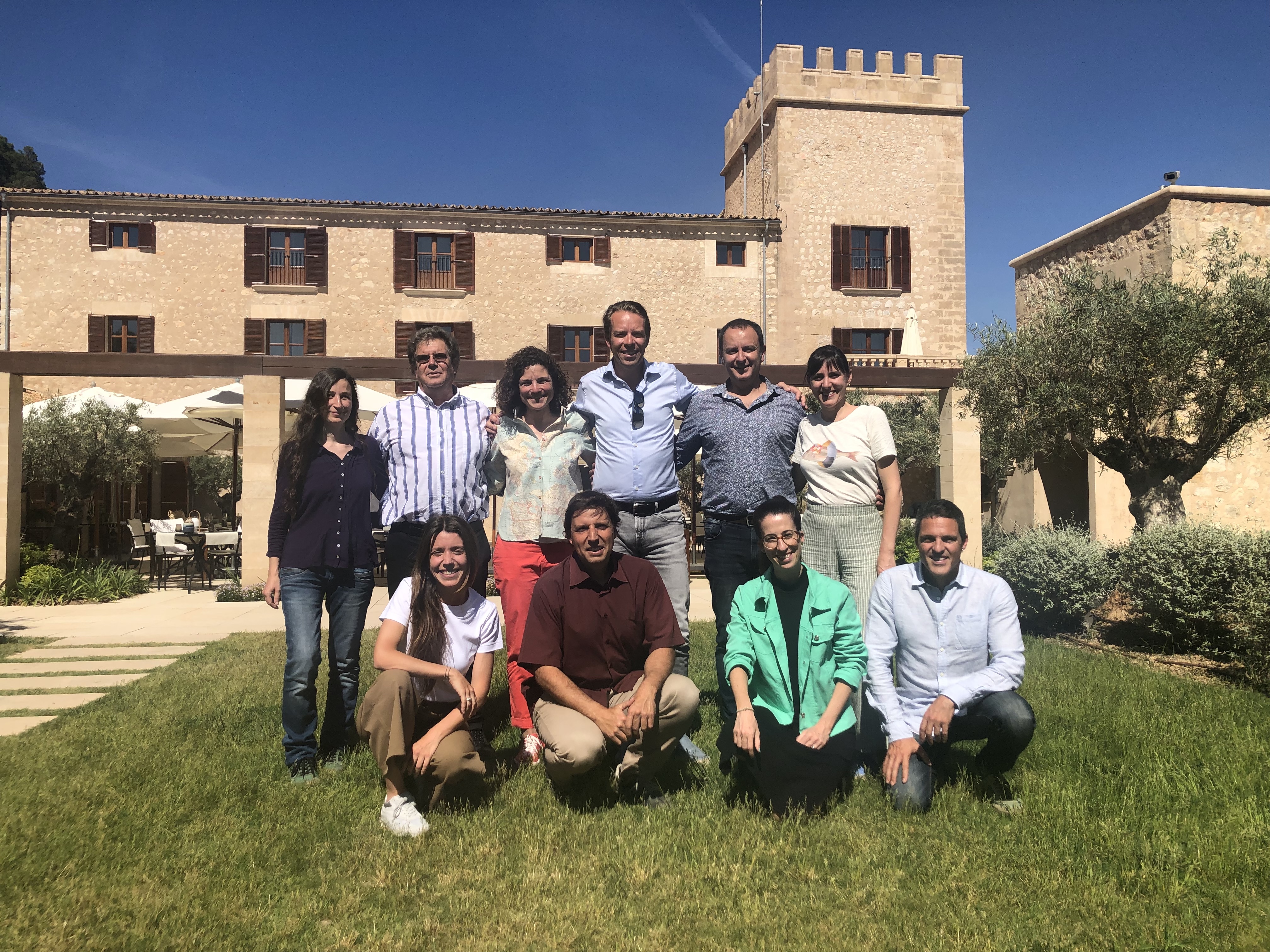
Jaume Perelló together with the other members of the board of trustees and part of the Marilles team, in May 2022. Photo: Marilles Foundation.
How do you see Marilles now, after five years of life?
Marilles occupies a space that was orphaned. There were many people, and there are many, who work for the sea. But two things were missing. On the one hand, more economic resources were needed to take action and to make the protection of marine areas, or good practices in the sea, a reality. On the other hand, people needed to work in a more coordinated way, more in tune with each other. Marilles has contributed a great deal to these two objectives. It is not just a matter of providing resources and that's it, but also of ensuring that the different actors, from fishers to ecologists, scientists, and the administration, can cooperate systematically, identifying the problems, each doing what they do best to tackle them.
I think this is the great result of these five years: to have promoted dialogue and collective analysis, beyond the projects of each entity or institution. The results, working in this way, are much more significant.
What do you think are the challenges for Marilles in the coming years?
The challenge is to continue working along the same lines: encouraging the 'family of the sea' to continue cooperating to increase the surface area of marine protected areas, and also to manage the resources dedicated to them, which are currently very scarce. At the same time, we must also continue working to promote a more harmonious relationship between citizens and the sea at all levels, from fishing to the preservation of Posidonia meadows and the reduction of pressure on the coast in general. In reality, these are lines of work that we have already begun in recent years. I believe that we must maintain them and even increase the intensity of the work because the Mediterranean needs us to find a balance between economic activity in the sea and the coast and its preservation. We will also continue to work to increase the funding of projects, and for this reason, Marilles has already begun to involve other funding agents, such as individuals and other foundations, to attract greater investment in the conservation of the natural environment.
What is your relationship with the sea?
I have always had a relationship with the sea. I have had a small semi-rigid boat for many years. I spend most of my weekends and days off in spring and summer at sea. I like sailing very much. I also had a small sailing boat and for many years it has been one of my passions. I like to find places and moments where there are few people, which is not always easy, and enjoy the sound of the sea in silence, or put on a pair of goggles and dive in. I am also a great foodie and love fresh fish. I often think we don't realise what a luxury and treasure it is to be able to go to the market and buy fresh fish.
Quick test for lovers
A book: The Lighthouse by Virginia Woolf.
An image that evokes the Balearic Islands: Cabrera.
A marine species: The scorpion fish.
A person or organisation of reference: Jaques Cousteau.
A beach: S'Arenalet d'Aubarca.
Optimistic, realistic, or pessimistic? Optimistic.
Marilles in the media
- 13/08/2025 Ràdio Illa: "Marilles, sobre l’ampliació de la Reserva des Freus: “Si volem mantenir el peix local, s’han d’emprar aquestes eines”"
- 25/06/2025 Ara Balears: "Pesca confirma la legalitat d'una xarxa dins la reserva del Toro després que un vídeo incendiï les xarxes"
- 10/06/2025 Ara Balears: "Niça: un altaveu per als oceans i per a la mar Balear"

